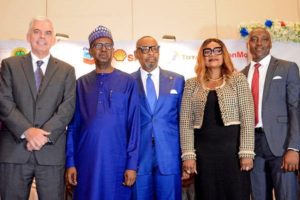
The Oil and Gas sector regulator in Nigeria, the Department of Petroleum Resources (DPR), has assured stakeholders in the sector of promoting adequate compliance in the sector for the good of the country.
The Acting Director of DPR, Ahmad Rufai Shakur, stated that DPR has the statutory responsibility of ensuring compliance to petroleum laws, regulations and guidelines in the oil and gas industry to bring effects of sanctity of contracts in commercial operations for the good of the country.
Speaking as a panelist during an energy conference in Lagos, Shakur, who was represented by Mr. Joseph Tolorunse, Head, Legal, DPR, stated that, “the discharge of these responsibilities as to bring sanctity of contracts in commercial operations involves monitoring of operations at drilling sites, producing wells, production platforms and flow-stations, crude oil export terminals, refineries, storage depots, pump stations, retail outlets, any other locations where petroleum is either stored or sold, and all pipelines carrying crude oil, natural gas and petroleum products is paramount for purposes of transparency.
“Others include maintaining records on petroleum industry operations, particularly on matters relating to petroleum reserves, production/exports, licences and leases, advising Government and relevant Government agencies on technical matters and public policies that may have impact on the administration and petroleum activities, Processing industry applications for leases, licences and permits, maintain and administer the National Data Repository (NDR) and also sometime perform settle some disputes resolution among the stakeholders to enable operations runs as it should be for the good of the country”.
The DPR boss reiterated that the effects of sanctity of contracts in commercial operations is the bedrock of the sector as businesses involves long terms contracts and as sector regulator, we demand total sanctity of contracts in commercial operations always.
In his welcome address, Mr. Olatunde Dodondawa, the Chairman, Association of Energy Correspondents of Nigeria, stated that he is confident “that the cream of experts at this event will identify the issues hindering optimal exploitation and utilization of our oil and gas resources and proffer solutions to them which certainly help the government to address the nation’s huge infrastructure deficit, poor investment inflow an boost operators’ commitment”.
Mr. Dodondawa noted that these in turn will help government achieve its aspirations to attaining 3 million barrels per day oil production, 40 billion barrels oil reserves, optimum value extraction from natural gas, resolving electricity supply problems and most of all attracting the expected investment from foreign and indigenous investors across the energy sector value chain.




